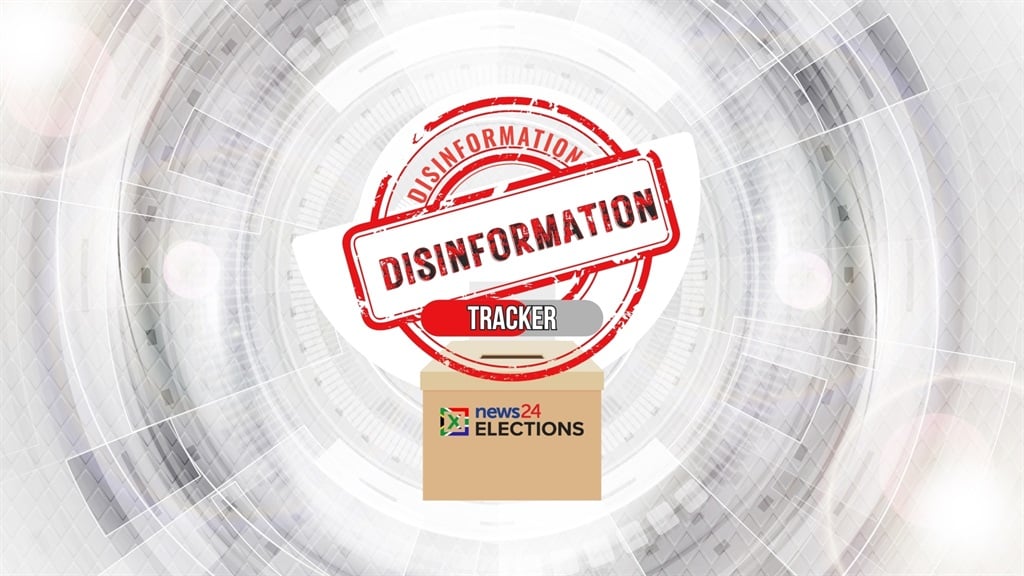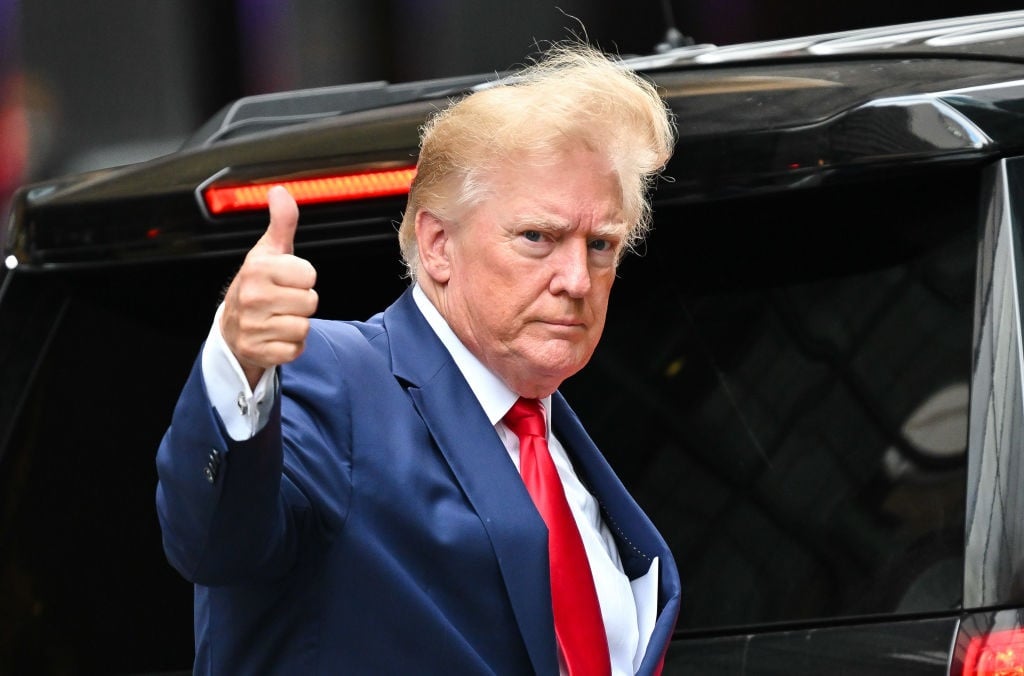
- Online attacks on the electoral process and the IEC are continuing unabated.
- A disinformation expert says this is especially egregious, considering the people peddling these false narratives should know better.
- Under the Electoral Act and Electoral Code of Conduct, some of the people spreading disinformation may be charged.
Jacob Zuma’s MK Party has ramped up its online disinformation campaign targeting the electoral process.
Since the weekend, several Twitter posts and TikTok videos have been shared of alleged “vote rigging”, pointing the finger at the Electoral Commission of South Africa (IEC) and specifically targeting the ANC.
“This type of disinformation targets the electoral process, undermining trust in this and every election going forward.
“The danger is two-fold; not only does it dissuade voter participation [since elections are rigged, why vote?], but it also foments distrust and discontent in the outcome,” said Jean le Roux, an independent disinformation researcher.
“In this case, the end goal is undermining trust in the IEC and, by extension, the elections themselves. The chaos around this serves parties with no legitimate expectation of contesting the elections through voting.”
At a press briefing on Tuesday, Chief Electoral Officer Sy Mamabolo said the IEC is concerned that there is already an orchestrated campaign to undermine the elections, Netwerk24 reported.
“The videos you saw on the weekend were not by accident. They are a clearly orchestrated effort to say these elections can’t be free and fair before they even happen.”
He said the IEC was determined to protect the integrity of the elections.
A particularly problematic tweet by Duduzile Zuma, accusing the ANC of stealing votes in KwaZulu-Natal, got more than 600 000 views and 1 500 retweets.
A TikTok with the same content by Visvin Reddy, who is already in trouble with the IEC for previous comments, was widely shared and stitched before he removed it.
Compare this to the 27.5 million registered voters for these elections, it might not seem like these posts are particularly impactful. So, should we even worry about these making a tangible, real-life impact?
Le Roux said causally linking online activity with real-world events was notoriously difficult.
“But every social media platform is built with the goal of changing the way we behave. The platforms sell our attention to advertisers in the hopes that we buy stuff, to politicians that we vote for them, and to conspiracy theorists that we believe them.
“An algorithm determines what you get to see of the world out there, which in turn shapes your view of the world. In this sense, what happens online never stays online, as we saw during the 2021 July unrest.”
The unrest, when Zuma supporters caused havoc, particularly in KwaZulu-Natal, after he was sent to jail for contempt of court, is a good example of how pre-existing unscrupulous political forces can harness discontent around socioeconomic issues.
Billions of rand were lost, businesses burnt down, and most importantly, more than 300 people lost their lives.
“The same seeds are being sown now by some political parties to undermine trust in the elections using contextless videos and unsubstantiated claims of vote rigging against the IEC, said Le Roux.
He added this was especially egregious, considering the people peddling these false narratives should know better.
“They’ve been involved in the electoral process before, and they are aware of the numerous checks and balances that the IEC has put in place to safeguard the integrity of the elections. Wilfully ignoring these is irresponsible and dangerous.”
Follow our live election disinformation debunking here
Regular voters can play an important part in challenging these attacks on the process.
“We encourage people to report instances where they see the IEC’s credibility being attacked with no credible evidence to real411, which is the official complaint platform for the elections,” said William Bird, the director of Media Monitoring Africa.
That way, complaints will be gathered and shared with the IEC.
Click here to report misinformation to real411
“Also, where the complaint constitutes mis- or disinformation, it can be submitted to the platform for them to act and remove it. The IEC may investigate or refer the instances to the electoral court as well.”
Possible legal repercussions
Under the Electoral Act and Electoral Code of Conduct, Reddy, Duduzile Zuma and the MK Party may be charged.
Specifically, this relates to section 89(2), which reads: “No person may publish any false information with the intention of, [a] disrupting or preventing an election; [b] creating hostility or fear to influence the conduct or outcome of an election; or [c] influencing the conduct or outcome of an election.”
Under section 93(2), no person may obstruct or hinder the IEC or its officials in exercising their powers or performing their duties.
MK Party members did this in Hammarsdale, illegally interfering with IEC operations at one of its warehouses west of Durban.
The MK Party has been involved in these incidents, which also contravenes the Code of Conduct that every party must subscribe to, specifically section 7.
This section states every party and candidate must “recognise the authority of the commission in the conduct of an election and assure voters of the commission’s impartiality” while also taking steps to ensure the safety of the IEC’s members, employees, and officers.
This includes making sure IEC officials are not subject to insults or injuries.
Under Section 9 of the Code of Conduct, no registered party or candidate may use language or act in a way that may provoke violence during an election or publish false or defamatory allegations in connection with an election.
These are just some of the laws the MK Party may have violated with its disinformation campaign.
The penalties that can be imposed are vast, and the court would have to decide on the seriousness and materiality of the actions before determining how to sanction the party and its members.
Some of the penalties that exist include a prison sentence of up to 10 years and a fine.
Political parties can be fined up to R200 000; must give up the party’s election deposit; be stopped from working in an area; have their votes in an area cancelled; or can have their party registration cancelled.
News24 understands the matter is still under investigation.
The IEC stated in its briefing on Monday it intended to bring legal action against the MK Party.
News24 contacted the IEC on Tuesday to ask under what charges it intended to file legal action. Its comment will be added once received.






Recent Comments